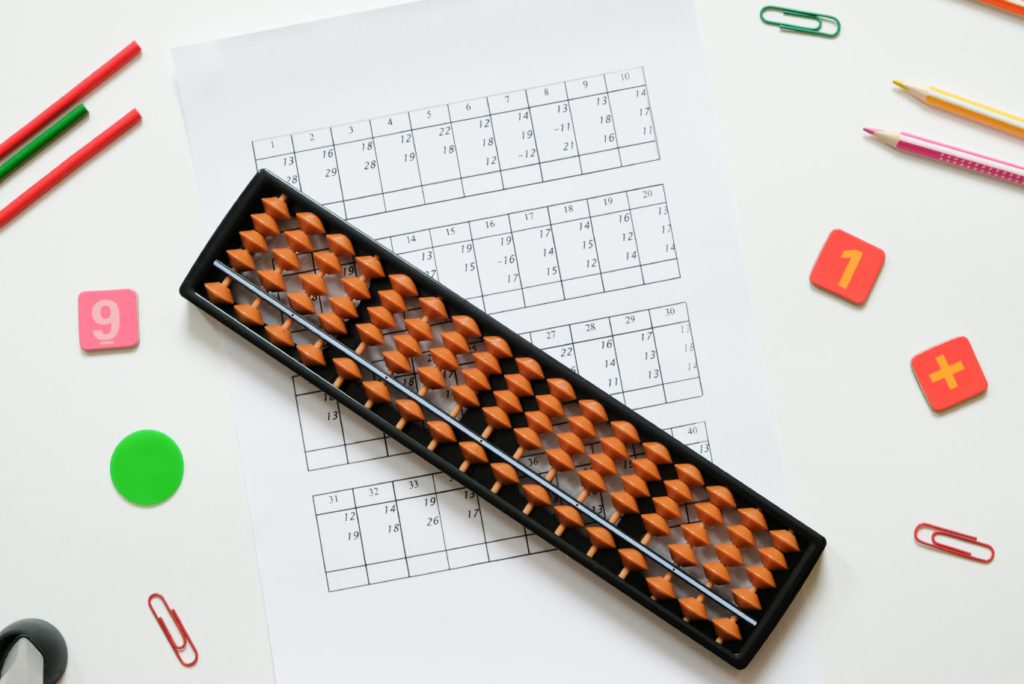With schools and learning institutions closed due to the COVID-19 pandemic, many parents scramble to find ways to keep their children academically engaged. One option that is gaining popularity is virtual abacus classes. While traditional abacus classes are useful for learning the different components of base ten math, an electronic version is much more versatile.
With the rise of online learning, more and more people are interested in teaching courses online. Online training has many advantages, including the ability to reach a global audience, the flexibility to design your course, and the convenience of not having to travel to a physical location.
Many online classes can help you learn abacus. These classes typically use various methods to teach you how to use the abacus, including video lessons, interactive exercises, and quizzes. Some online abacus classes also offer real-time training to get immediate feedback on your progress.

Tips to Start Abacus Classes Virtually
Create an Abacus Classroom
To get started with abacus classes, teachers must determine what material they want to teach. The best way to teach anything is through a hands-on approach. Before students are introduced to the abacus, they should create a classroom where they will be able to put it together themselves. Then, give them a lesson plan that shows how the abacus works and gives them practice with basic mathematical operations.
Create Abacus Kits
To save time, teachers can create kits that include every type of component needed for the class. These can be stored in a toolbox so students know where to find what they need. For example, a kit for 1st graders might include the abacus, a dozen beads of each color, and one dozen counters of each color. Another example would be counters of all shapes for grades 6 through 8. Teachers should create kits for all grade levels and focus on subjects like addition, subtraction, multiplication, and division.
Keep the Kits Organized for Abacus Classes
After creating the kits from tip #2, teachers should take more time to categorize them by level or subject matter. Then, students should be able to find what they need quickly. If the kits are not organized, children may become frustrated when they can’t find the right object or color.
Compliment the Abacus Classroom with Whiteboards
Instead of creating permanent wall space for an abacus classroom, teachers can use whiteboards to create any number of variations on the theme. This allows teachers to create lesson plans and add them as required on class days. This will save time and make it easier for parents who want to assist their children at home.
Work with Local Abacus Operators
If there are abacus operators in the area, the school may be able to work with them to create a curriculum that highlights their skills. For example, a class for elementary school students might highlight basic addition and subtraction, which can be reinforced at home by having parents play games that involve counting. A class for older students might focus on more complex math problems and have parents reinforce those lessons during weekends and holidays.
Create an Abacus Club for Elementary Students
Elementary students can keep abacus lessons interesting by starting an after-school club that meets twice a week. Each session can last for 30 minutes and provide a good amount of reinforcement while they wait for their next grade level to begin abacus classes.
Clubs like these can also be used as a reward once students complete the year in physical classrooms, which will help encourage fun activities that help improve math skills.
Create an Abacus Club for Middle School Students
Middle school students may also benefit from starting an abacus club at their school. This will allow them to socialize with other students with similar interests and help them keep abacus lessons fresh in their minds. This is also a good option for students who excel at the subject.
Create an Abacus Club for High School Students
High school students already know that they like abacus classes, but that doesn’t mean they will be able to get through all of the necessary subjects on their own. It is possible to create a club that meets during lunchtime on Tuesdays and Thursdays.
This gives them a chance to meet with others interested in the same subject and get a good amount of reinforcement for their work. The club can last for several hours so students can meet after school or at other times that fit their schedules.
Create an Abacus Club for K-12 Students
The abacus club is ideal for K-12 students who need additional reinforcement or who want extra help from a teacher or parent. They will be able to meet with others and get extra help from parents, teachers, or other adults in their community who already know about the abacus. Teachers would also benefit from bringing the abacus into their classes to help with lessons or at least give students a chance to get extra reinforcement for their work.
Final Thoughts
Students need to be working on math skills long-term. In addition, there are advanced math abacus clubs that teachers and parents can create to take it further in the classroom or at home.
After students have invested the time to create their classroom and created an abacus class, they will be able to learn math skills in a way that is engaging and fun. This will produce better results in the long term and make math easier for students.
If you are passionate about teaching and want to take your coaching business to the next level then Classplus is here to help you. Get your own coaching app in less than 60 seconds with amazing features made just for you. Connect now to know more.



